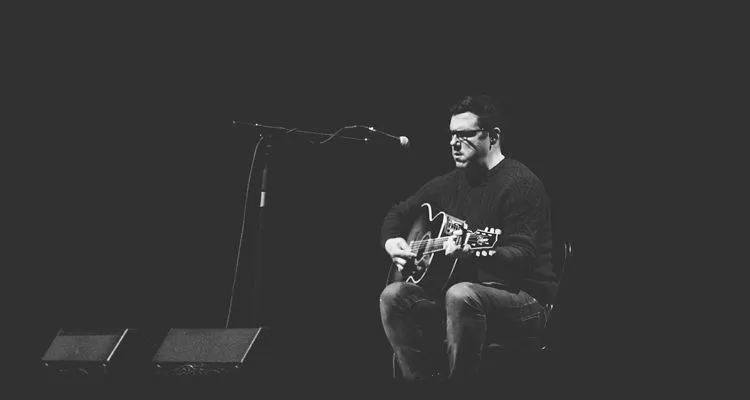Photo Credit: Abby Gillardi / CC by 2.0
American songwriter Damien Jurado is joining Neil Young in removing his music from Spotify.
While Neil Young removed his music from Spotify in protest of its acquisition of the Joe Rogan podcast, Jurado focused more on the platform’s low royalty pay for artists. He spoke about his reasoning in a Facebook post.
“Maraqopa Records has made the decision to leave Spotify,” the post begins. “Why? Answer: I simply cannot continue to support or align myself with a corporation who continues to profit off of the musicians it refuses to pay a fair and decent living wage. I am requesting the action of my removal immediately.”
“My principles must align with the life I live. Just as the personal decisions I make when it comes to both the environment and animal welfare. This to me is no different. Keep in mind that it is only Spotify that I am removing my music from. Platforms such as TIDAL, Apple Music, etc. will stay in place. Understand that I am in no way, shape or form, anti-streaming. I accept reality.”
“I however do not accept unacceptable business practices, and unfair treatment of artists,” Jurado’s statement concludes. Jurado has released over 20 albums, often featuring stories rooted in the fictional location, Maraqopa.
Spotify pays artists between $0.003-$0.005 per stream on average. The revenue split with Spotify and rightsholders is 70/30, with 70% going to rights holders and 30% to Spotify’s offers. Rights holders for a song can include the publisher, songwriter, master recording owners, artists, and label. Spotify uses a ‘pro-rata’ distribution model–which really affects small artists.
Artist pay is influenced by Spotify’s total streaming revenue pool, the negotiated global payout as a percentage of that revenue, the total number of streams on the platform, and the artists number of streams on Spotify. Royalties are always in flux due to this and not all streams are created equal.
Where fans are based can impact royalties the same as whether music is being enjoyed by Spotify Free listeners or Spotify Premium listeners.

